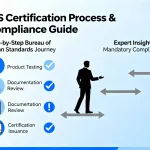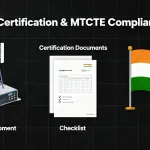Extended Producer Responsibility (EPR) is a crucial concept in today’s drive towards sustainable waste management practices. It places the responsibility for managing the environmental impact of products on the producers throughout their life cycle. By embracing EPR, producers are encouraged to adopt sustainable practices, minimize waste generation, and ensure proper waste disposal. This article will explore the importance of Extended Producer Responsibility (EPR) in promoting sustainable waste management.
1. Understanding Extended Producer Responsibility (EPR)
Extended Producer Responsibility (EPR) is a policy approach that holds producers accountable for the entire life cycle of their products, including design, manufacturing, packaging, distribution, and post-consumer disposal. The objective of EPR is to shift the burden of managing waste from governments and local authorities to the producers themselves. By doing so, EPR aims to promote sustainable practices, reduce environmental impact, and conserve resources.
2. Encouraging Producers to Take Responsibility
Under EPR, producers are incentivized to adopt environmentally friendly practices and reduce the environmental footprint of their products. They are responsible for implementing effective waste management systems, establishing mechanisms for collection and recycling, and educating consumers about responsible product disposal. By taking responsibility for their products, producers can contribute to the overall goal of sustainable waste management.
3. Role of EPR in CPCB Board Compliance
The Central Pollution Control Board (CPCB) in India plays a pivotal role in enforcing environmental regulations and ensuring compliance across industries. EPR is an integral part of CPCB Board Compliance, as it aligns with the principles of sustainable waste management. By integrating EPR into compliance measures, the CPCB encourages producers to meet environmental standards, reduce pollution, and promote recycling and proper waste disposal practices.
4. Significance of EPR in Driving Environmental Sustainability
The significance of Extended Producer Responsibility (EPR) in driving environmental sustainability cannot be overstated. By placing responsibility on producers, EPR encourages the adoption of eco-friendly practices, promotes the use of sustainable materials, and minimizes waste generation. It also fosters the development of efficient waste management systems, encourages recycling, and reduces the burden on landfills. Ultimately, EPR plays a vital role in preserving the environment, conserving resources, and creating a sustainable future.
5. Embracing EPR for a Sustainable Future
Embracing Extended Producer Responsibility (EPR) is crucial for achieving sustainable waste management goals. Producers must proactively integrate EPR principles into their operations, collaborate with stakeholders along the supply chain, and strive for continuous improvement in their environmental performance. By doing so, they contribute to a circular economy, reduce the environmental impact of their products, and ensure a healthier and more sustainable future for all.
Conclusion
Extended Producer Responsibility (EPR) is a key driver in promoting sustainable waste management practices. By embracing EPR, producers take responsibility for the environmental impact of their products, leading to reduced waste generation, efficient recycling, and proper waste disposal. EPR is an essential component of CPCB Board Compliance, contributing to environmental sustainability and the preservation of our planet.





